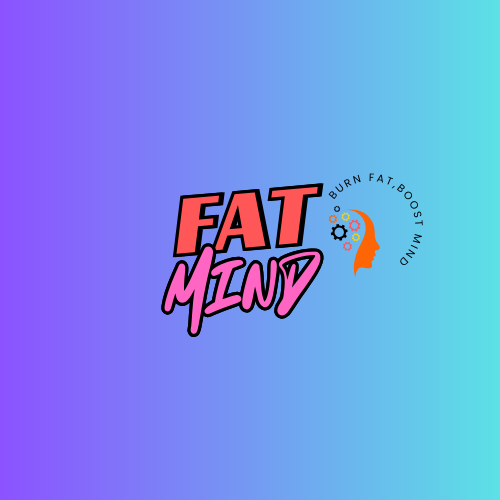How It Helps Reduce Belly Fat
- Focuses on healthy fats (olive oil, nuts, avocados) that improve insulin sensitivity
- Includes fiber-rich vegetables and whole grains, which promote satiety and fat burning
- Reduces processed foods and sugar intake, helping to stabilize blood sugar
How It Supports Mental Health
- Rich in omega-3s from fatty fish, which reduce inflammation and improve brain function
- Includes polyphenols and antioxidants that support cognitive health and prevent mood disorders
- Helps balance gut bacteria, which is directly linked to mood regulation
The Ketogenic Diet: Fat-Burning and Cognitive Enhancement
How It Helps Reduce Belly Fat
- Eliminates high-carb foods, forcing the body to burn stored fat for energy
- Reduces insulin levels, making it easier to lose stubborn belly fat
- Increases fat metabolism and energy expenditure
How It Supports Mental Health
- Provides ketones as an alternative fuel source for the brain, improving focus and mental clarity
- Reduces blood sugar fluctuations, preventing mood swings and brain fog
- May help lower inflammation associated with depression and anxiety
The Intermittent Fasting Approach: Optimizing Fat Loss and Brain Function
How It Helps Reduce Belly Fat
- Enhances autophagy (cell repair process), improving metabolism
- Lowers insulin levels and promotes fat burning
- Reduces caloric intake naturally without strict food restrictions
How It Supports Mental Health
- Improves brain-derived neurotrophic factor (BDNF), which enhances cognitive function
- Reduces oxidative stress and inflammation in the brain
- Helps regulate hormones like cortisol, improving stress resilience
The DASH Diet: Controlling Belly Fat Through Balanced Nutrition
How It Helps Reduce Belly Fat
- Encourages lean proteins, whole grains, and healthy fats to stabilize weight
- Reduces sodium and processed food intake, preventing bloating and water retention
- Helps maintain stable blood pressure, which is linked to better metabolism
How It Supports Mental Health
- Provides nutrient-dense foods that support brain health and cognitive function
- Balances electrolytes and hydration levels, reducing mental fatigue
- Contains magnesium-rich foods (leafy greens, nuts) that promote relaxation
The Plant-Based Diet: Gut Health and Fat Reduction
How It Helps Reduce Belly Fat
- High in fiber, which improves digestion and promotes satiety
- Contains phytonutrients that reduce inflammation and prevent fat accumulation
- Eliminates processed animal fats that contribute to metabolic disorders
How It Supports Mental Health
- Encourages gut microbiome diversity, which is crucial for mental health
- Provides B vitamins and antioxidants that improve neurotransmitter function
- Reduces inflammatory markers that are linked to depression and anxiety
How to Choose the Right Diet for You
1. Identify Your Goals
- If you want quick fat loss, consider intermittent fasting or keto
- If you prefer sustainable, long-term weight management, try Mediterranean or DASH
- If you prioritize gut health and digestion, a plant-based diet may be ideal
2. Prioritize Whole, Nutrient-Dense Foods
Regardless of the diet, avoid processed foods, refined sugars, and artificial additives to optimize fat loss and mental clarity.
3. Monitor Your Body’s Response
- Track energy levels, mood changes, and weight fluctuations
- Adjust your diet based on how your body and mind respond over time
Conclusion: Eating for a Leaner Body and a Healthier Mind
The right diet can reduce belly fat, enhance metabolism, and improve mental well-being. Whether you choose Mediterranean, keto, intermittent fasting, DASH, or plant-based eating, focus on whole foods, balanced nutrition, and mindful eating to achieve long-term success.
Next Steps:
- Read More: [How Gut Health Affects Belly Fat and Mental Stability]
- Try This: [Best Lifestyle Habits for Sustainable Fat Loss]
FAQ ‘s
1. Which diet is the most effective for reducing belly fat?
The most effective diet depends on your metabolism, lifestyle, and preferences. Intermittent fasting and keto tend to work fast for fat loss, while Mediterranean and DASH are more sustainable for long-term health.
2. Can my diet really affect my mental health?
Yes. Nutrient-dense foods support brain function, hormone balance, and stress resilience, while processed foods, sugar, and unhealthy fats contribute to mood swings, fatigue, and cognitive decline.
3. How does inflammation from food affect belly fat?
Inflammatory foods (sugar, processed carbs, trans fats) increase cortisol and insulin resistance, leading to fat accumulation in the abdomen. Anti-inflammatory diets help reverse this process.
4. How long does it take to see results from diet changes?
Results vary based on metabolism and adherence, but many people notice reduced bloating and better energy within a week, and visible fat loss within 4-8 weeks.
5. What’s the best way to prevent diet-related mood swings?
To avoid mood swings, focus on stable blood sugar levels by eating balanced meals with protein, fiber, and healthy fats, and reducing processed sugars and refined carbs.
